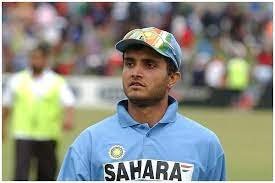Former BCCI president Sourav Ganguly, a prominent figure in Indian cricket, recently found himself at the center of an unfortunate incident as he reported a theft at his Behala residence in Kolkata. The incident came to light after Ganguly filed a complaint at the Thakurpukur police station on February 11, prompting authorities to initiate investigations into the matter.
According to reports from HT Bangla, Ganguly’s complaint revolves around the disappearance of his smartphone, valued at ₹1.6 lakh and equipped with support for two 5G SIM cards. Ganguly expressed deep concern over the loss of his phone, highlighting the significance of the device as it contained multiple contact numbers and access to personal information and accounts.
Former BCCI president Ganguly conveyed his apprehensions to the police, urging them to trace the missing phone or take appropriate action. His statement underscores the potential risks associated with the loss of a device containing sensitive personal data, emphasizing the need for swift intervention and resolution.
The circumstances surrounding the theft remain unclear, with Former BCCI president Ganguly reportedly last seeing the phone around 11:30 am on January 19. Despite extensive efforts to locate the device, Ganguly was unable to recover it, prompting him to escalate the matter by filing a formal complaint with the authorities.
In the wake of the incident, Ganguly expressed concerns about the safety of his personal information contained within the stolen phone. Given the sensitive nature of the data stored on the device and its potential implications, Ganguly’s apprehensions are warranted, highlighting the broader issue of cybersecurity and personal privacy in the digital age.
Notably, Ganguly’s residence was undergoing painting work at the time of the theft, resulting in increased foot traffic and potential opportunities for unauthorized individuals to gain access to the premises. Ganguly’s account of the events underscores the challenges posed by such situations, where routine activities can inadvertently expose individuals to security risks.
Ganguly’s experience serves as a reminder of the importance of safeguarding personal belongings and exercising vigilance, particularly in environments where security measures may be compromised. The incident underscores the need for heightened awareness and proactive measures to prevent theft and protect personal assets.
Meanwhile, Ganguly’s remarks on the ongoing U-19 World Cup shed light on his perspectives beyond the realm of personal affairs. In a recent interaction with RevSportz, Ganguly expressed his views on the financial dynamics of the tournament, describing it as a “loss-making proposition.”
Ganguly’s assessment reflects the economic realities of organizing international sporting events, particularly those that do not feature senior men’s teams. While acknowledging the inherent challenges of hosting such tournaments, Ganguly emphasized the broader significance of the U-19 World Cup and its contribution to nurturing young talent in the sport.
Despite its financial implications, Ganguly remains optimistic about the future of the U-19 World Cup and its potential impact on Indian cricket. He expressed confidence that the tournament would continue to be held in India, underscoring the country’s stature as a cricketing powerhouse and its commitment to fostering talent at the grassroots level.
Ganguly’s insights offer valuable perspectives on the intersection of sports, economics, and talent development, highlighting the complexities involved in organizing and sustaining international competitions. His comments reflect a nuanced understanding of the challenges and opportunities inherent in the world of cricket administration, reaffirming his status as a leading figure in the sport.
As investigations into the theft at Ganguly’s residence continue, the incident serves as a sobering reminder of the importance of security and vigilance in safeguarding personal belongings and sensitive information. Ganguly’s proactive response underscores the need for prompt action and collaboration between individuals and law enforcement agencies to address such incidents effectively.













